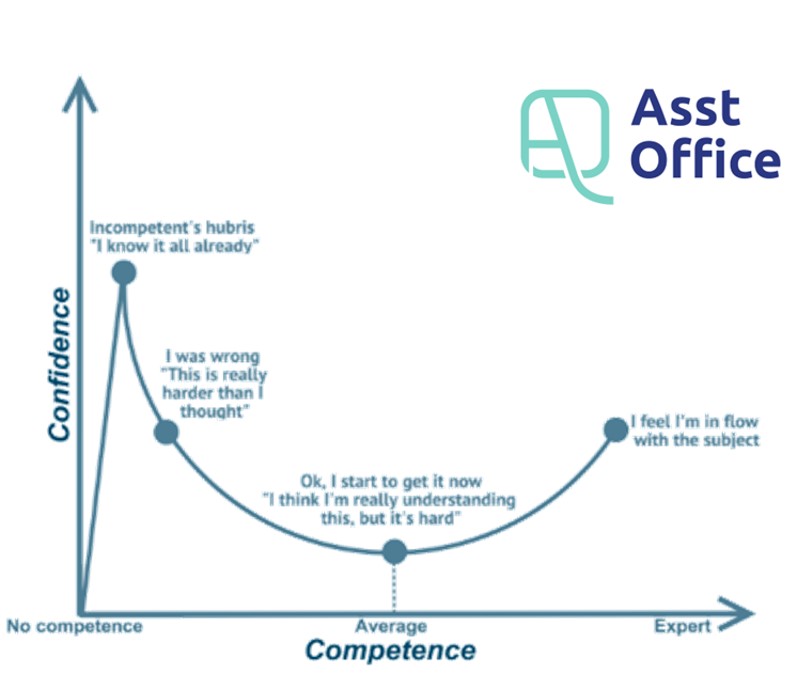The concept of the Dunning-Kruger effect is based on a 1999 paper by Cornell University psychologists David Dunning and Justin Kruger, which focused on logical reasoning, grammar, and social skills.
The Dunning-Kruger effect is a cognitive bias in which people with low ability at task or people with limited competence in a particular domain overestimate their ability, while people with high ability at task underestimate their ability.
The Dunning-Kruger effect is sometimes misinterpreted in popular culture as a generalization about the overconfidence of low-IQ individuals rather than the specific overconfidence of individuals who lack proficiency in a particular task.
Causes the Dunning-Kruger effect
Regarding the cause of the Dunning-Kruger effect, there are differing opinions.
The researchers attributed the trend to a problem of metacognition—the awareness of your thought process.
“Those with limited knowledge in a domain suffer a dual burden: not only do they reach mistaken conclusions and make regrettable errors, but their incompetence robs them of the ability to realize it.”
In other words, poor performers misjudge their abilities because they fail to recognize the qualitative difference between their performances and the performances of others.
The actual results are explained by the statistical model as a statistical effect combined with the inclination to believe oneself to be better than average.
According to the rational model, inaccurate self-evaluation stems from excessively favorable past views about one’s abilities.
Another theory holds that because many low performers have very similar ability levels, self-assessment is more challenging and prone to errors for them.
Ignorance is sometimes bliss
Not every explanation of the Dunning-Kruger phenomenon emphasizes its negative aspects. Some also focus on its advantages, such as the fact that ignorance can occasionally be bliss. In this way, overconfidence may enable people to accomplish even seemingly impossible ambitions, while optimism can help them see the bright side of their circumstances. Preparatory planning and plan execution are two critical stages that have been proposed to be crucial for achieving a goal to separate the positive from the negative.
Dunning claims that excessive confidence can help during the execution stage by increasing motivation and energy. However, it can be harmful during the planning stage if the agent chooses to overlook poor odds, take unnecessary risks, or neglect to make backup plans.

In the financial industry, the Dunning-Kruger effect can arise when individuals who lack substantial knowledge and experience think they are very talented. Many risky actions, including aggressive trading, disregarding diversification, and underestimating potential losses, can result from overconfidence. Investors may find the illusion of knowledge to be a dangerous companion, especially in erratic markets where unanticipated events can quickly deplete wealth.
Source: Britannica, Psychology Today, The Decision Lab, AsstOffice



